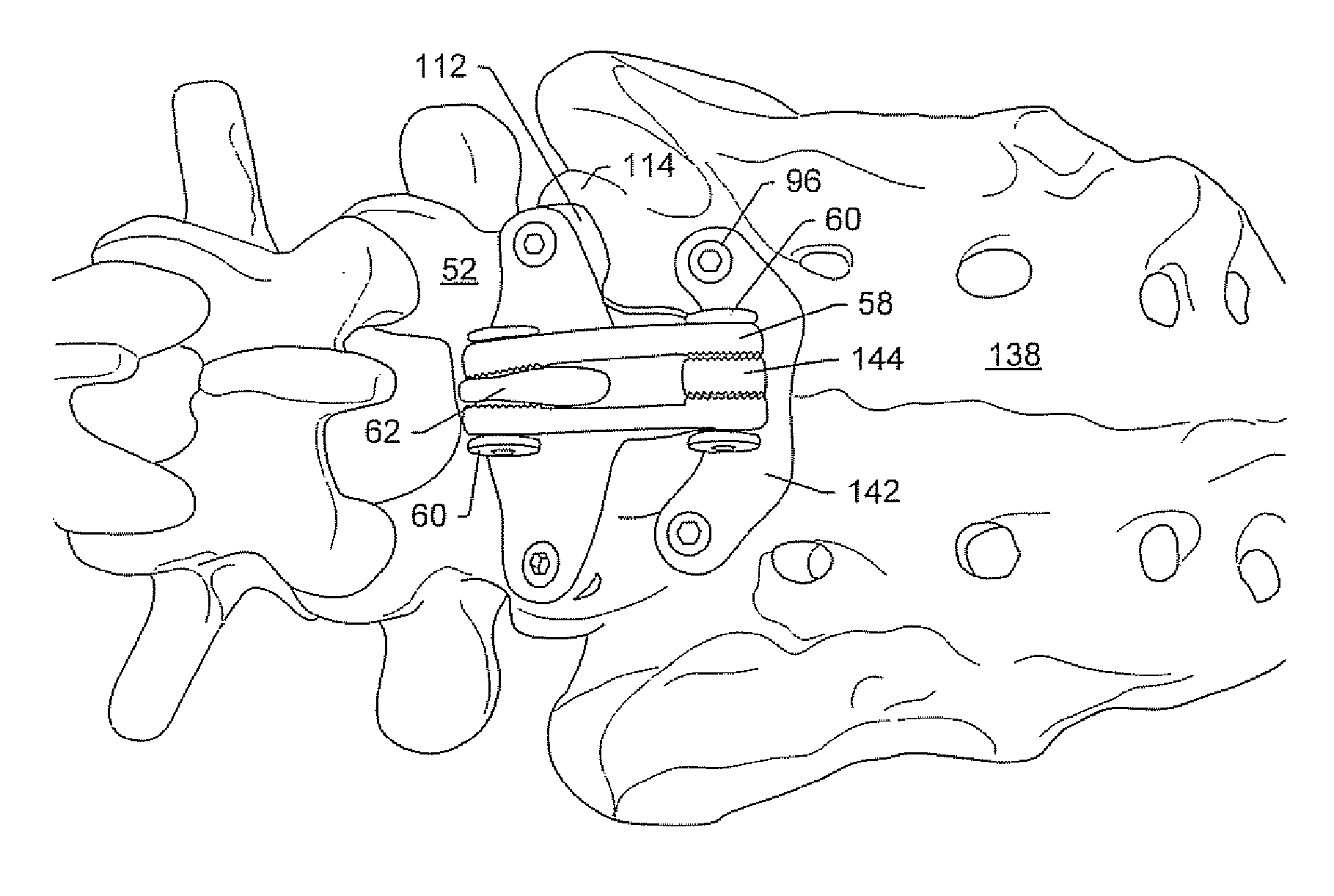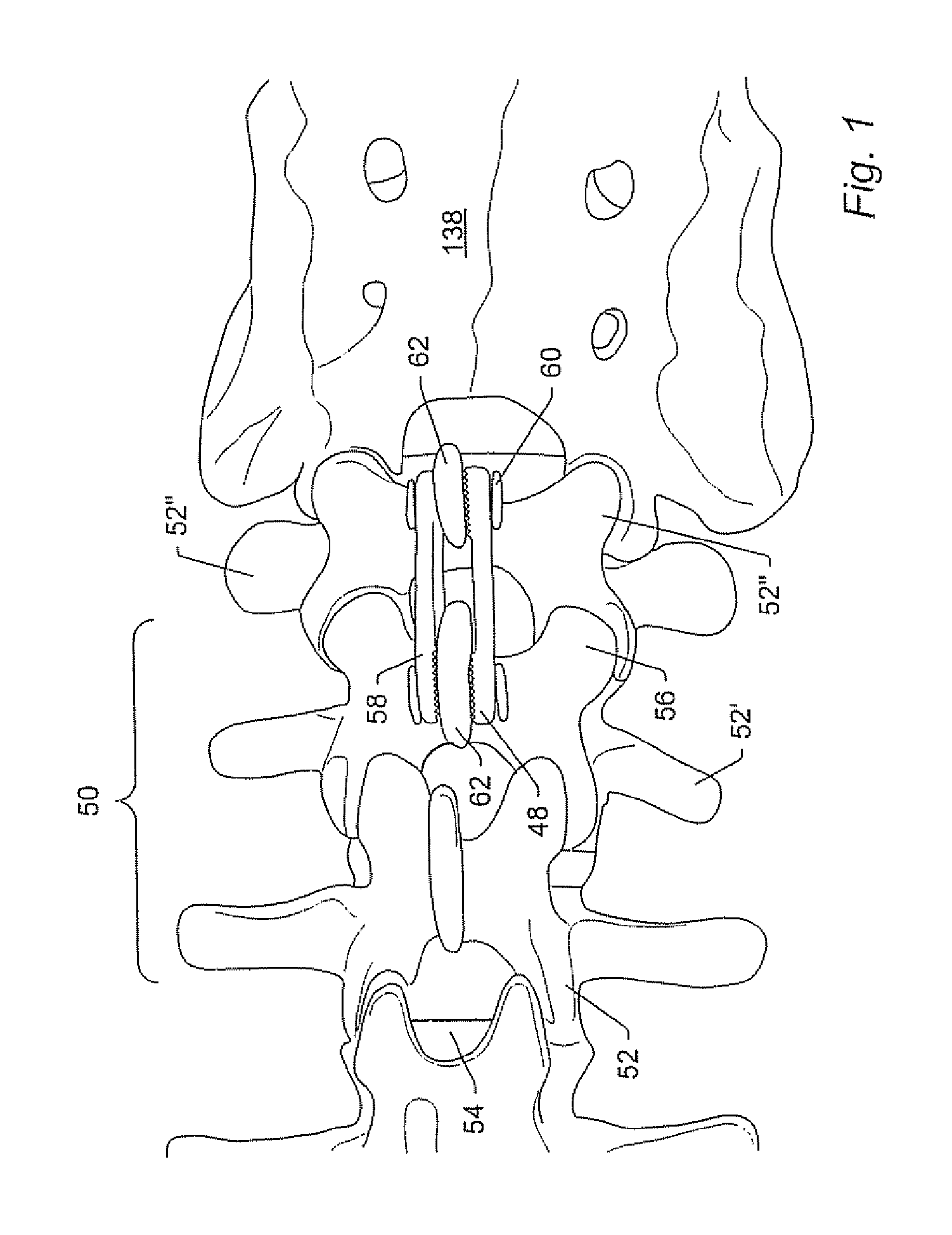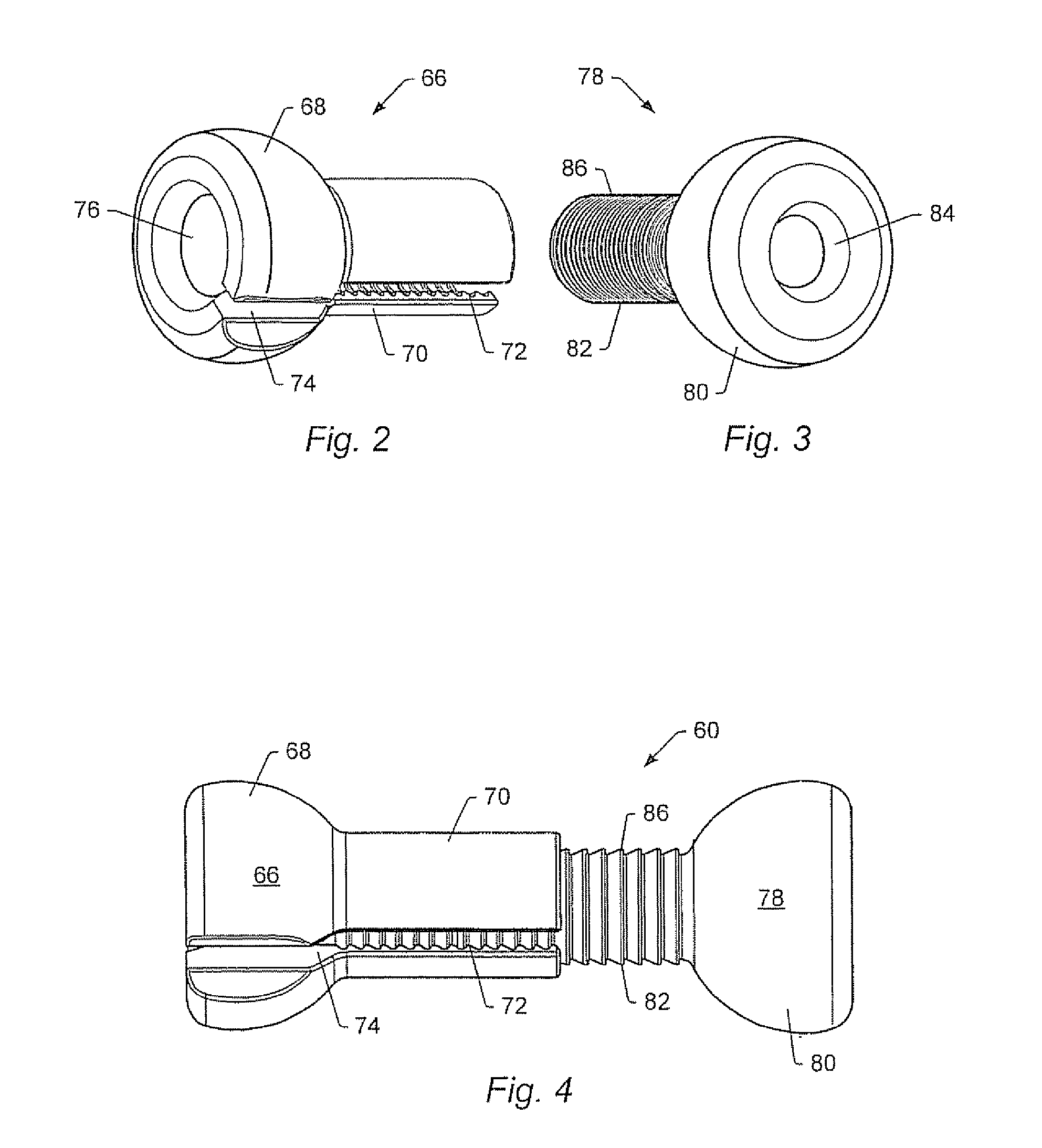Spinal stabilization system and method
a stabilization system and spine technology, applied in the field of medical devices, can solve the problems of pain and/or partial or complete loss of mobility, interbody devices alone may not be able to support a portion of the spine sufficiently, and the insertion of the pedicle screw may require highly invasive surgery, so as to promote bone growth, promote bone growth, and restore the stability of the lumbosacral region of the spin
- Summary
- Abstract
- Description
- Claims
- Application Information
AI Technical Summary
Benefits of technology
Problems solved by technology
Method used
Image
Examples
Embodiment Construction
[0050]A spinal stabilization system may provide stabilization for one or more vertebral levels of a spine. In some embodiments, a spinal stabilization system may be utilized as a stand-alone system. In some embodiments, a spinal stabilization system may be used in conjunction with other systems or devices to provide stability to the spine. For example, a spinal stabilization system may be used in conjunction with a spinal implant (e.g., an interbody fusion device, an artificial disc, and / or a vertebral construct). The spinal stabilization system may be easy to install with only minimal intrusion to adjacent tissue and muscle as compared to conventional stabilization systems. In addition, the spinal stabilization system may provide minimal risk of dural or neural damage during installation and use.
[0051]Appropriately sized spinal stabilization systems may be used to couple adjacent vertebrae of a spinal column. For example, an appropriately sized spinal stabilization system may be us...
PUM
 Login to View More
Login to View More Abstract
Description
Claims
Application Information
 Login to View More
Login to View More - R&D
- Intellectual Property
- Life Sciences
- Materials
- Tech Scout
- Unparalleled Data Quality
- Higher Quality Content
- 60% Fewer Hallucinations
Browse by: Latest US Patents, China's latest patents, Technical Efficacy Thesaurus, Application Domain, Technology Topic, Popular Technical Reports.
© 2025 PatSnap. All rights reserved.Legal|Privacy policy|Modern Slavery Act Transparency Statement|Sitemap|About US| Contact US: help@patsnap.com



